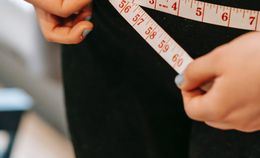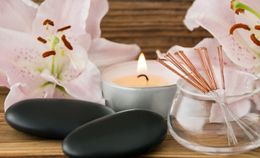Daily take an immune booster.
This first step can be split into a two-prong approach:
Incorporate immune boosters into your daily food routine. Breakfast is an easy way to do this. Grapefruit, orange, cherry and lemon juice are a great place to start. Daily eating citrus works just as well.
Another way to incorporate immune boosters into your daily diet is to increase your use of herbs and spices. Thyme is a great example. I have eggs several times a week, I usually add some fresh thyme. Thyme is very appropriately named. It is great for the thymus gland which shrinks almost down to nothing by age 40, and is responsible for producing our T-cells. T-cells are key to our immune system and our body's aggressive first line of defense. Modern medical doctrine believes that no T-cells are produced by the thymus after puberty. I don't believe it. We were also told it's impossible to regenerate brain cells. We now know that isn't true. In any case, children who are still actively producing T-cells should benefit from adding it to their diet. If you use this herb liberally in your meals several times a week, then you've added immune boosters to your routine.
Take a medicinal aggressive approach to immunity boosting. I practice the above as a lifestyle approach. I've decided due to the threat of a pandemic, to also aggressively strengthen my immune system by daily taking a dropper full of Reishi mushroom tincture. There are a variety of mushrooms noted for their immune strengthening properties. This article breaks down other options you may consider.
Daily sun gaze. (Under no circumstance should you look directly at the sun)
Vitamin D deficiency plays an outsized role in our susceptibility to infection throughout the winter months. Simply standing outside (or even inside by a window) and gazing at the sun for a couple of minutes a day greatly increases the Vitamin D. Proper sun gazing is a must. Sun gazing without damaging your eyes can be accomplished in several ways:
Sun gaze at dawn when the sun is on the horizon and just creeping up. Or at dusk when it is setting.
View the sun through the leaves of a tree, through cloud cover or through a tiny gap between your fingers.
Incorporate nature's antivirals into your daily routine.
Garlic is one of the most powerful food medicines available to humans. It is practically impossible to consume too much garlic so that it is harmful. When cooking savory meals, saute some garlic and add your veggies and meat.
Onions are another powerful food medicine. Some chefs claim that every meal should start with onions. Now is a good time to take this adage to heart.
Honey has been used medicinally for eons. Almost all ancient cultures were known to use it in such a matter. Even the mainstream medical community acknowledges its antibacterial and wound healing properties. But recent studies have confirmed the old wives, tale that it is an antiviral. A recent (2012) study supported by the National Institutes of Health concluded that both manuka and red clover honey have significant antiviral effects.1 If you are using honey for more than sweetening your tea: I recommend purchasing raw honey, manuka honey, red clover honey, or some combination of. Another recent (2014) study of the flu virus concluded that honey in general and manuka honey in particular effectively inhibit viruses from replicating, and concluded it was potent and promising medicinally.2
The viruses studied both the H1N1 Influenza virus and the varicella Zoster Virus (VZV). These viruses are enveloped viruses, they have a layer of protein encasing them, making them difficult to kill. Coronavirus is also an enveloped virus. Honey showing effect on enveloped viruses is very promising. Add it to your diet. Have it on hand in the event of an outbreak.
Ginger is my favorite antiviral and I consume it in some capacity every day. I add raw fresh ginger root to smoothies, juices, my water, and if I break down and have a Vernors, Pepsi, or other type of ginger ale, I add it to them as well.
THIS IS NOT MEDICAL ADVICE THIS IS INFORMATION WE ALL SHOULD HAVE.
References:
1 https://www.ncbi.nlm.nih.gov/pmc/articles/PMC3401066/
2 https://www.sciencedirect.com/science/article/abs/pii/S0188440914001106










